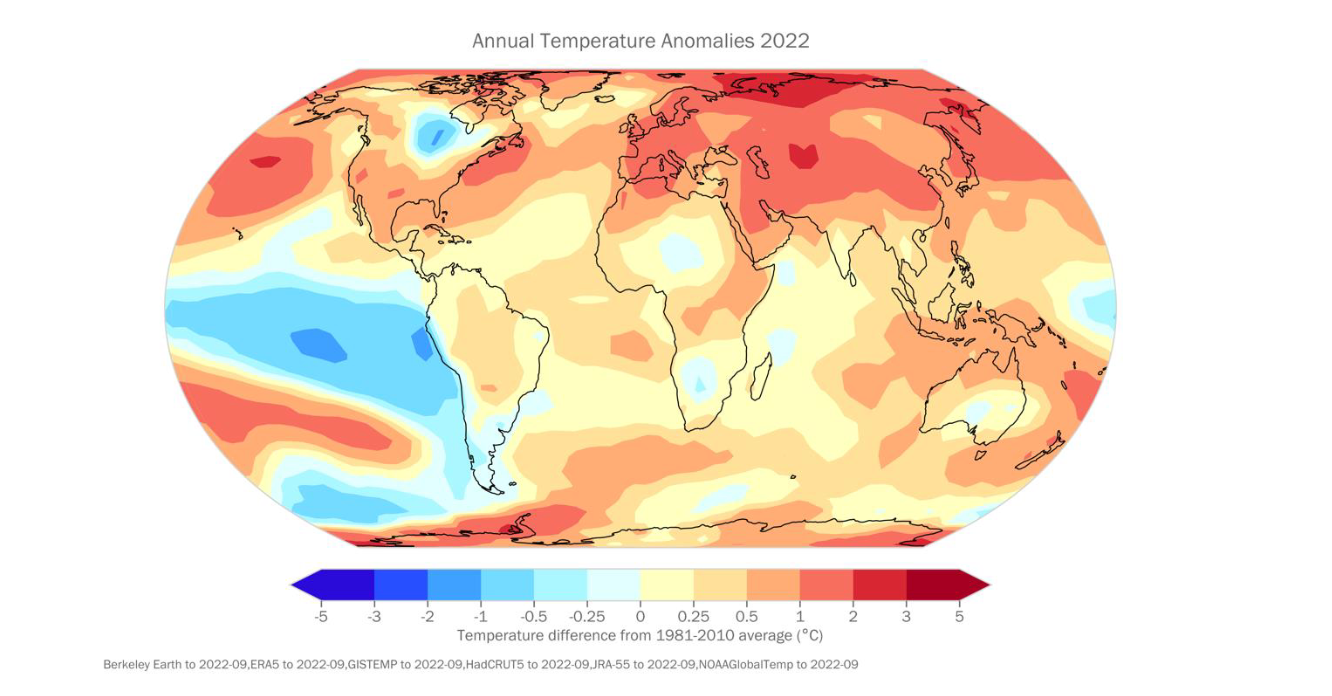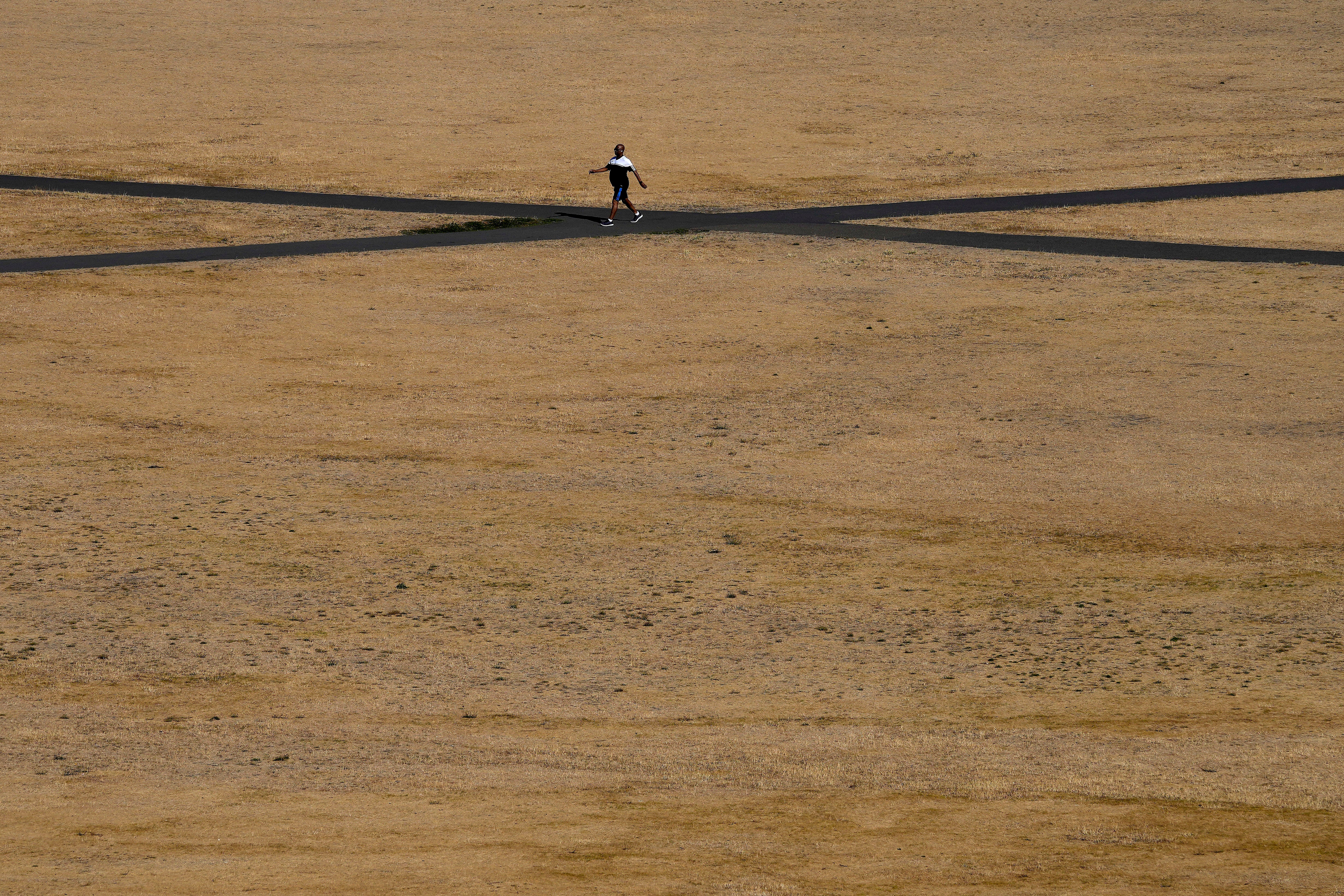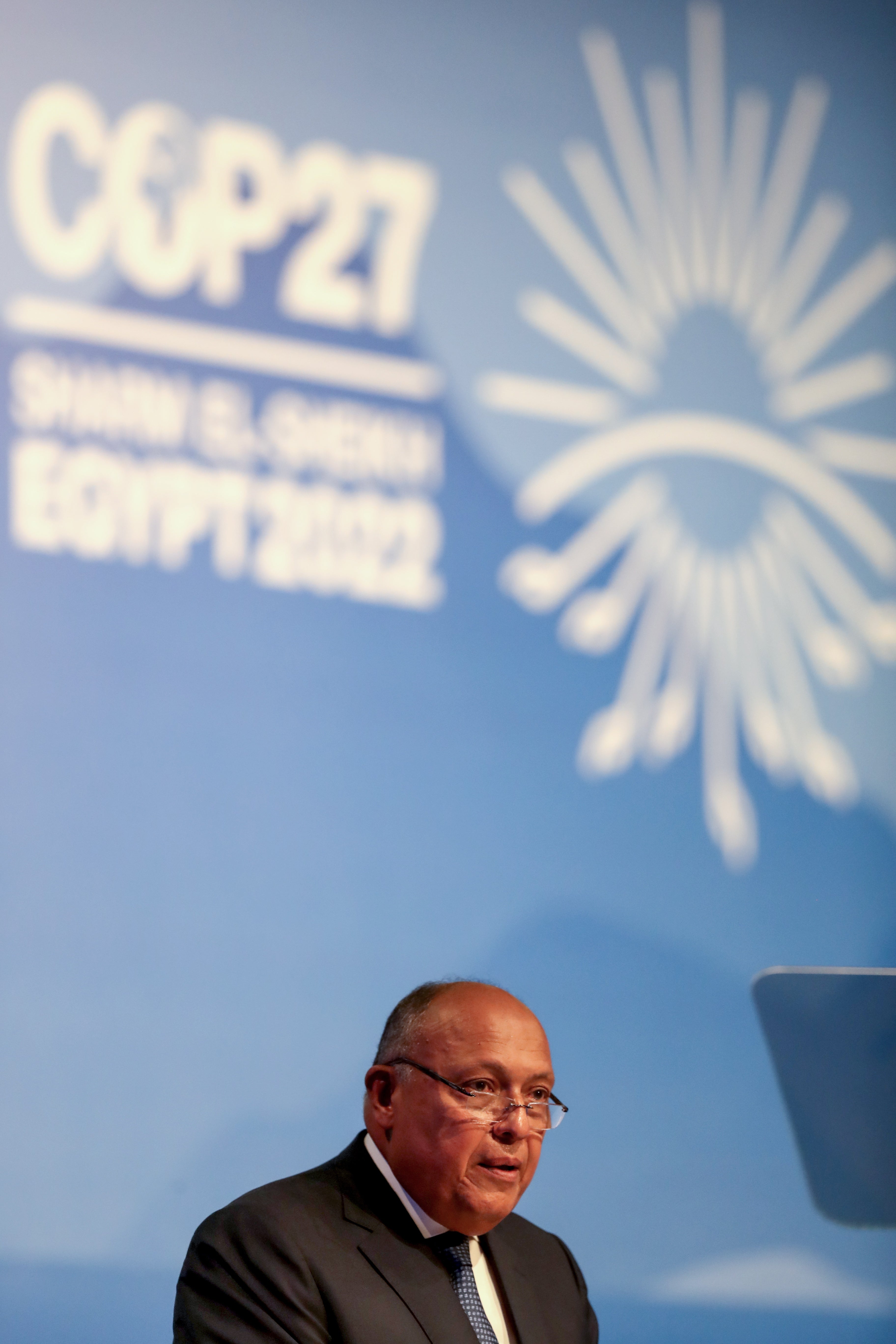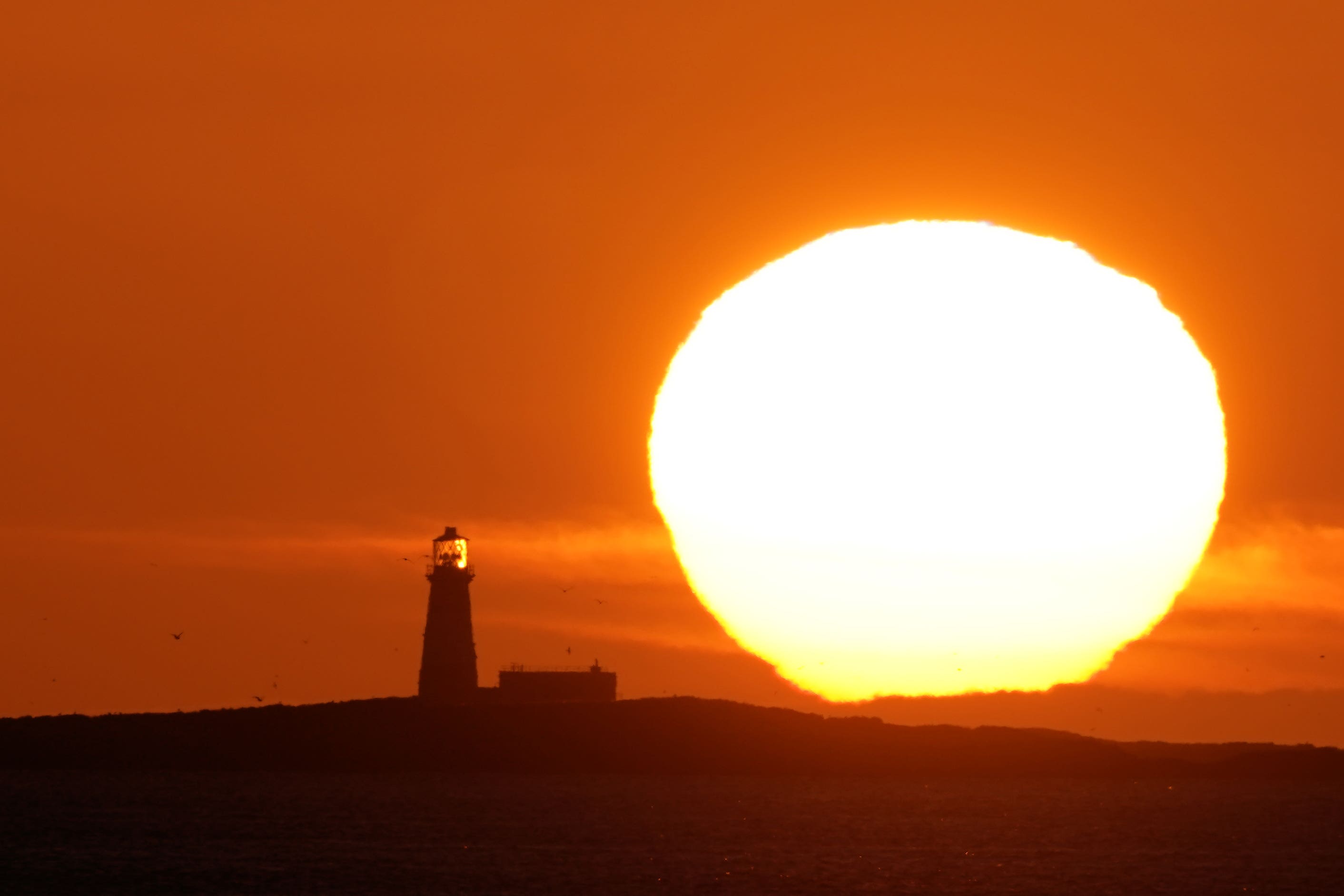‘Shred the blinkers’: Last eight years revealed as hottest on record as world gathers for critical Cop27
Keeping global warming to the lower 1.5C target of the Paris Agreement ‘barely within reach’
Your support helps us to tell the story
From reproductive rights to climate change to Big Tech, The Independent is on the ground when the story is developing. Whether it's investigating the financials of Elon Musk's pro-Trump PAC or producing our latest documentary, 'The A Word', which shines a light on the American women fighting for reproductive rights, we know how important it is to parse out the facts from the messaging.
At such a critical moment in US history, we need reporters on the ground. Your donation allows us to keep sending journalists to speak to both sides of the story.
The Independent is trusted by Americans across the entire political spectrum. And unlike many other quality news outlets, we choose not to lock Americans out of our reporting and analysis with paywalls. We believe quality journalism should be available to everyone, paid for by those who can afford it.
Your support makes all the difference.The past eight years have been Earth’s hottest on record, findings revealed, as the critical United Nations climate summit Cop27 gets under way.
World leaders and thousands of negotiators, scientists, and activists are gathering in Sharm el-Sheikh, Egypt, for the next two weeks to hash out the global pacts urgently needed to avoid planetary catastrophe.
Antonio Guterres, the UN secretary-general, warned this week that the 2020s are a “crucial” decade, “when the global climate fight will be won or lost”.

The global carbon footprint must be cut nearly in half by the end of the decade to hold back from dangerous temperature rises. Instead, emissions, largely from burning fossil fuels, are increasing.
Mr Guterres also called on rich countries to make a “historic pact” with poorer nations to help the most vulnerable survive climate impacts.
There are expectations that Cop27 will be one of the most difficult climate summits in years. It comes after a tumultuous 12 months which has seen Russia’s brutal invasion of Ukraine, global energy shortfalls cost of living crises in rich countries and some poorer nations left on the brink of famine.
The climate havoc has been relentless. This year alone has seen devastating flooding in Pakistan, persistent drought in the Horn of Africa and southern China, wildfires and deadly heatwaves across Europe, and Hurricane Ian’s decimation of Florida.
Millions of lives have been affected with damages running to multibillions of dollars.

On Sunday, the provisional State of the Global Climate report was published by the World Meteorological Organisation (WMO).
It found that this year, the global temperature is estimated to be 1.15 degrees Celsius (1.02 -1.28C) above the 1850-1900 average. This 10-year average (from 2013-2022) compares with 1.09C from 2011 to 2020.
The year will “only” be the fifth or sixth hottest year, the WMO noted, due to the rare triple-dip cooling La Niña (the oceanic and atmospheric phenomenon that is the colder counterpart of El Niño). However this won’t reverse the long-term trend, and it’s only a matter of time before the heat record is broken again.
“The greater the warming, the worse the impacts. We have such high levels of carbon dioxide in the atmosphere now that the lower 1C of the Paris Agreement is barely within reach,” said WMO secretary-general Professor Petteri Taalas.

Among the new findings are:
- Glaciers in the European Alps suffered record melting this year. “It’s already too late for many glaciers and the melting will continue for hundreds if not thousands of years, with major implications for water security,” Taalas noted
- Average ice thickness losses of between 3 and over 4 metres were measured throughout the Alps
- In Switzerland, no snow outlasted the summer season for the first time in history – even at the highest points
- The Greenland ice sheet shrank for the 26th year in a row. Rain fell on the icy expanse, rather than snow, for the first time in September
- Ocean heat is at record levels and sea levels rose 10mm overall in the past two and a half years, the rate doubling in the past 30 years
“Although we still measure this in terms of millimetres per year, it adds up to half to one metre per century and that is a long-term and major threat to many millions of coastal dwellers and low-lying states,” Prof Taalas added.
In a separate report this week, WMO found that the rate of warming recorded in Europe was the highest of any continent in the world, soaring beyond twice the global average in 30 years.
The annual climate summit has the aim of keeping to the 2015 Paris Agreement goal of limiting warming to 1.5C or “well below” 2C.

To do so, countries need to pledge more dramatic emissions cuts – known as “Nationally Determined Contributions” (NDCs) – to cut the global carbon footprint by 45 per cent in 2030, and reach net zero by 2050.
Yet, only 24 out of 194 countries have submitted new or updated NDCs, which they promised to do last year at Cop26 in Glasgow. The total is less than 1 per cent of projected global emissions in 2030, the UN Environment Programme reported last week.
“The state of the global climate? Parlous. If there was ever a year to swamp, shred and burn off the blinkers of global climate inaction then 2022 should be it,” said Professor Dave Reay, executive director of Edinburgh Climate Change Institute, University of Edinburgh.
“The world now has a monumental job of damage limitation. This includes redoubling efforts to cut emissions and give us more than the cat in hell’s chance we currently have of meeting the Paris climate goals. It also means going hard at adaptation, protecting the most vulnerable and embedding climate resilience into every investment, every policy and every community.”
At the beginning of the summit, Secretary-General Guterres will unveil WMO’s new plans to provide early warning systems to all countries to help protect people against increasingly extreme weather events. Currently, half of them lack this ability.




Join our commenting forum
Join thought-provoking conversations, follow other Independent readers and see their replies
Comments